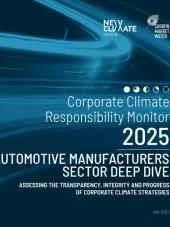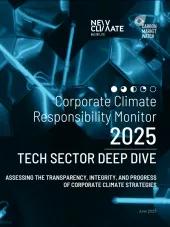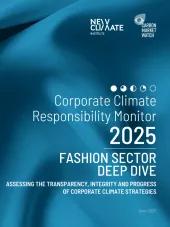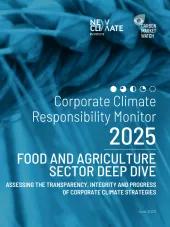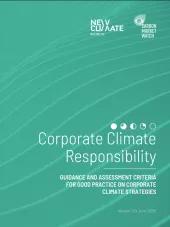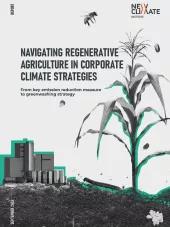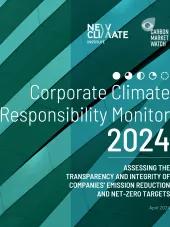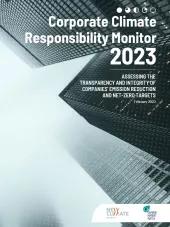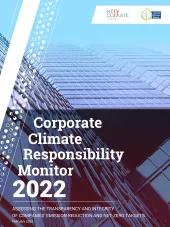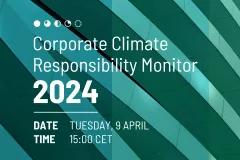The 2025 Corporate Climate Responsibility Monitor (CCRM) analyses the climate strategies of 55 major global companies, critically assessing their corporate climate leadership. We evaluate the transparency and integrity of their climate pledges and identify examples of good practice for replication and highlight areas where improvement is needed. This year, we additionally assessed the companies’ progress on key transitions necessary for deep emission reductions in four sectors: food and agriculture, tech, fashion and automotive manufacturing.
"While awareness of what constitutes credible corporate climate action is growing among companies and standard setters, even the most ambitious companies often fail to align their business models with the speed and scale needed to meet the Paris Agreement’s 1.5°C goal." - Frederic Hans, NewClimate Institute
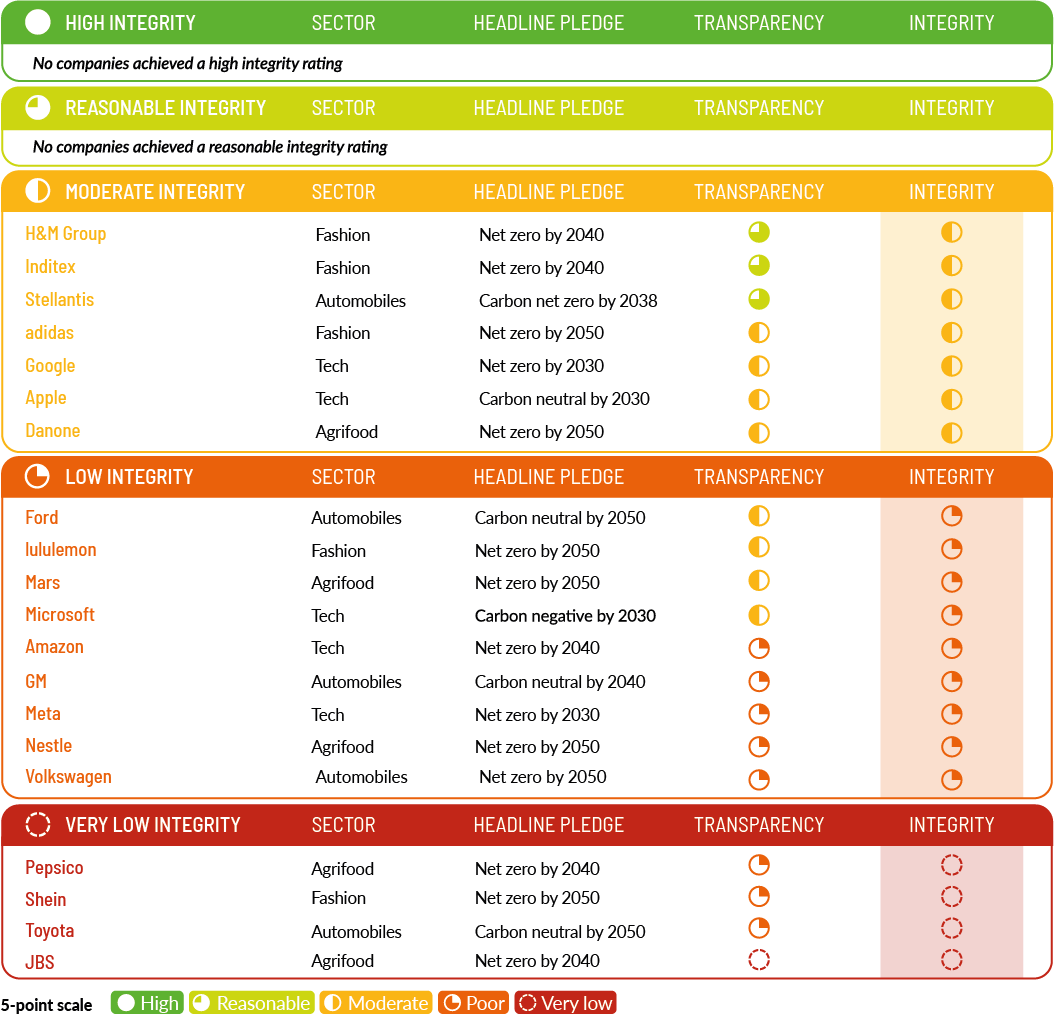
Table: Overview of companies assessed in the Corporate Climate Responsibility Monitor 2025
Key insights include:
- Encouraging signs of growing awareness among companies and standard setters on the key components of what constitutes credible corporate climate strategies.
- GHG emission reduction targets alone are no longer fit for purpose. Incomplete emissions disclosure, sector-specific accounting malpractices and data limitations continue to undermine transparency and make it increasingly difficult to assess what targets really mean and how companies progress to achieve them.
- None of the 20 companies assessed in the sector deep dives demonstrate a climate strategy of ‘reasonable’ or ‘high’ integrity. Only a few frontrunners – such as H&M Group, Stellantis and Apple – are assessed as having ‘moderate’ integrity, due to early progress on robust strategies and piloting high-integrity approaches. Meanwhile, standard setters often validate climate strategies without addressing persistent structural shortcomings.
- Transition-specific alignment targets are essential to complement GHG targets and accelerate near-term emissions reductions. These metrics directly reflect companies’ key transitions to decarbonise their business models and should become a cornerstone of credible corporate climate strategies.
- Several frontrunners have begun to set meaningful transition-specific alignment targets, offering replicable examples for accelerating sectoral transitions. Notable examples include Stellantis and General Motors’ targets for electric vehicle sales, Google and Microsoft’s 24/7 carbon-free energy strategies, H&M’s commitment to 100% renewable electricity across its supplier base by 2030, and Danone’s target to reduce methane emissions in fresh milk production.
- Revisions to key standards in 2025/26 must reorient the corporate accountability system towards short-term, structural emission reductions. Strengthening guidance on sector-specific transitions, resolving technical ambiguities, and limiting undue corporate influence will be critical to ensure credible and effective corporate climate action.
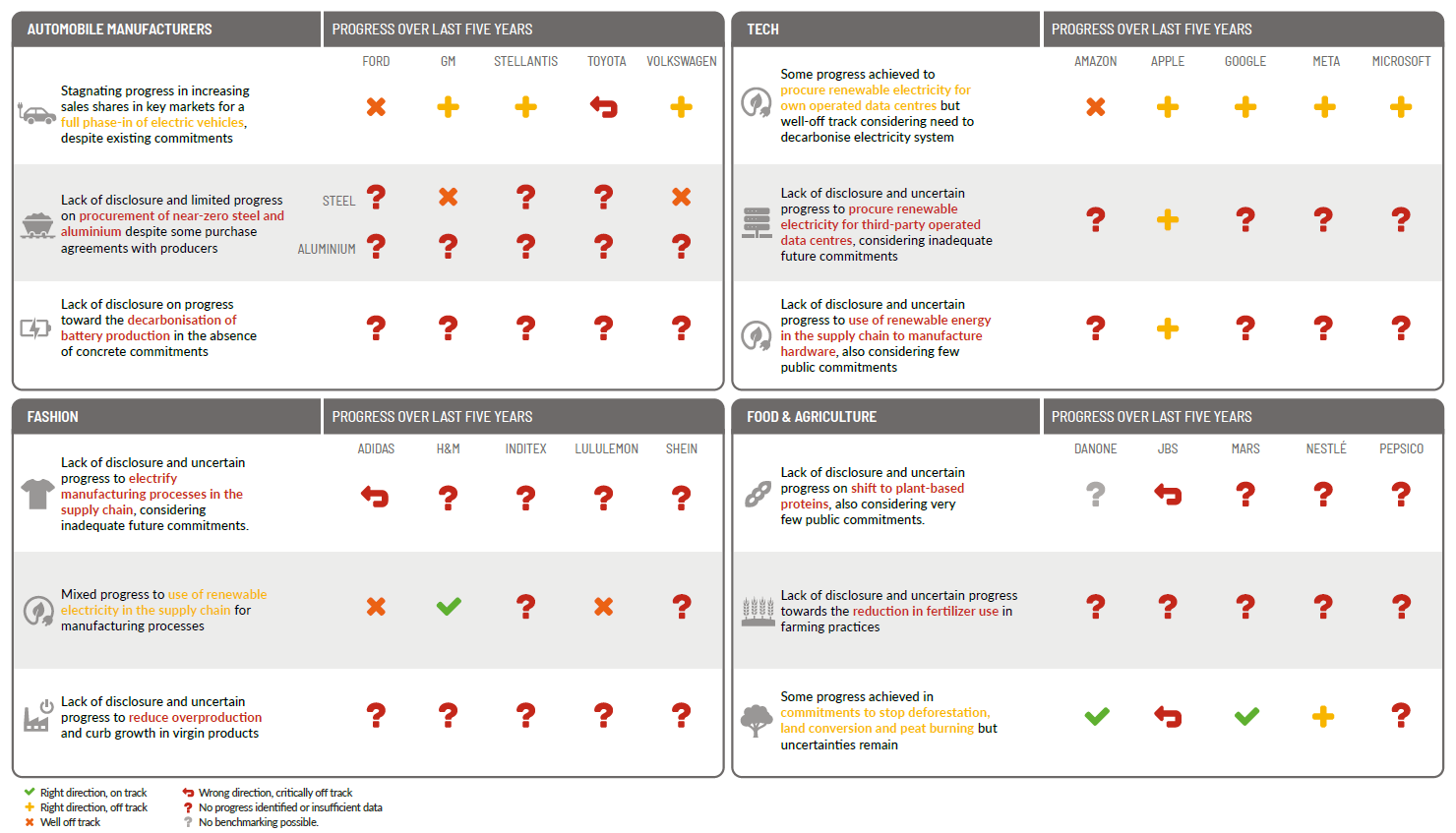
Figure: Lack of transparency and limited progress on key sectoral transitions across 20 multinational companies in the Corporate Climate Responsibility Monitor 2025
Sector-specific highlights
Food and agriculture sector
The food and agriculture sector is responsible for nearly one-third of global emissions. The 2025 CCRM assesses Danone, JBS, Mars, Nestlé and PepsiCo, finding that while some companies have taken initial steps – such as setting targets for methane reductions or halting deforestation – overall, efforts fall short on supporting the key transitions needed for sectoral decarbonisation. Priority areas for action include shifting to plant-based protein, reducing fertiliser use, halting land-use change and minimising food loss and waste.
Tech sector
With energy demand from data centres projected to triple by 2030, the tech sector faces rising scrutiny. The 2025 CCRM finds that the climate strategies of Amazon, Apple, Google, Meta and Microsoft fall short of demonstrating credible leadership, as outdated emissions accounting methods and surging energy demand undermine the meaning of GHG targets. Still, the report identifies early signs of leadership, notably through efforts by Google and Microsoft to implement hourly renewable energy matching or Apple’s approach to renewable energy in the supply chain. However, these remain isolated examples rather than sector-wide practices.
Fashion sector
The 2025 CCRM assesses the climate strategies of Adidas, H&M Group, Inditex, Lululemon and Shein. While some companies have strengthened their emission reduction targets, the overall integrity of strategies remains limited. Key transition areas – including electrification of manufacturing and renewable energy sourcing – are not sufficiently addressed, and reliance on false solutions such as biomass and fossil gas continues to undermine credibility. No company assessed achieved a rating of reasonable or high integrity, highlighting the urgent need for more robust, transition-aligned strategies across the fashion sector.
Automotive manufacturing
This chapter assesses the climate strategies of five major automotive manufacturers: Ford, General Motors, Stellantis, Toyota and Volkswagen. Apart from Stellantis, none of the assessed companies present credible short- or long-term climate strategies. Key sectoral transitions – including reducing battery production emissions and sourcing near-zero materials – remain largely unaddressed. The findings underline the need for clearer guidance and stronger incentives to accelerate meaningful decarbonisation in the automotive sector.




